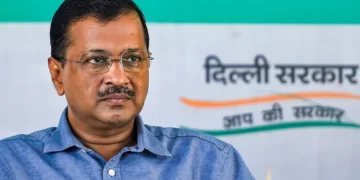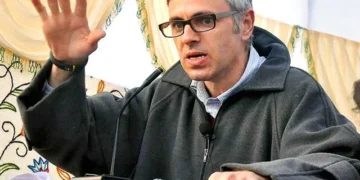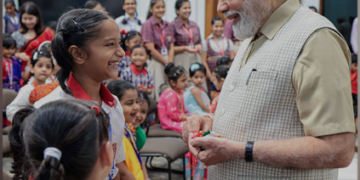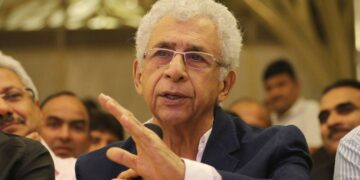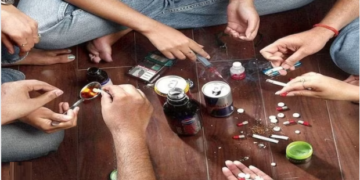In the post-pandemic world where vaccines have emerged as the silver lining, the tourism landscape has shifted radically. As the wave of infection has ebbed and travel restrictions are being lifted, travelers are approaching the gamut of tourism differently and this has also had a bearing on their choice of destinations.
India is all set to reopen its borders to overseas travelers amidst a drop in COVID-19 infections. Various state governments in the country too are gearing up for attracting the post-pandemic traveler and Maharashtra is at the forefront of this movement to boost tourism in the state. The third largest and the second most populous state in India is the quintessential travellers’ delight – be it the array of architectural masterpieces that give you a glimpse into the rich historical past or the pristine beaches fringing the Arabian Sea or the multitude of religious spots or the breathtaking verdure and biodiversity of the Western Ghats – Maharashtra has an eclectic tourism scene.
As the tourism industry resuscitates from the heavy blow dealt by the COVID-19 pandemic, there is a growing realization that innovation is pivotal in the journey ahead. Taking cognizance of this, the Department of Tourism, Maharashtra government is pushing various policies for ensuring the participation of different stakeholders to promote innovative tourism experiences. Here are a few examples:
1. The Beach Shack Policy: The tourism department will be issuing special permits for the temporary construction of shacks, portable cabins, deck-beds, umbrellas etc. The construction has to be compliant with environmental regulations to ensure the ecosystems of the beaches are not harmed in any way. The policy will be implemented in Ratnagiri (Guhagar, Arevare), Sindhudurga (Kunkeshwar, Tarkali), Raigad (Varsoli, Diveagar), Palghar (Kelava and Bordi) and only ten beach shacks will be permitted to be built on each beach. 80 percent of the jobs created in the beach shacks will be reserved for locals and the license period is three years. Also, it is mandatory for the shacks to use biodegradable cutlery for food and drinks.
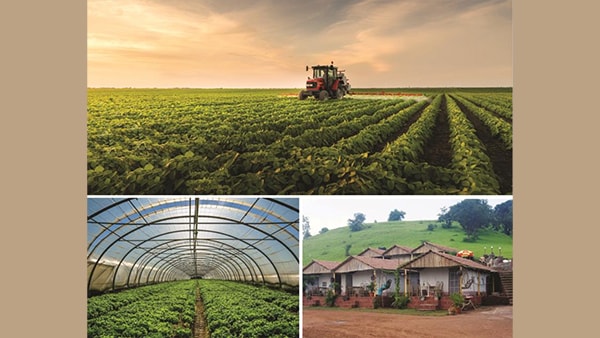
2. Agro Tourism policy: Agro tourism is a relatively nascent concept which entails travel in rural areas and has an educative element to it with experiences being centered around agriculture. The Maharashtra government has drafted a policy that will tap into agro tourism to catalyse the development of rural areas and generate more employment opportunities. According to the new policy the state aims to generate an annual 10% income from the tourism sector and contribute 15% income share of the tourism sector in the state’s gross income and the government is striving to tap into the potential of agro-tourism for meeting this target. Agro tourism centers will receive registration certificates from the tourism department and the owners of such centers will also get loans on the basis of these certificates. These centers can also avail incentives and other benefits of other government schemes.

3. Caravan Tourism: A typical accommodation is in vogue in the post-pandemic tourism scenario. Travellers are willing to look beyond hotels, resorts and traditional accommodation options especially in remote areas where finding places to stay may be tricky. To keep up with this shift, the government of Maharashtra has formulated the ‘Caravan Tourism’ policy which has provisions for the tourism department to formulate strategies and boost caravan-related activities in the public and private sectors and on PPP basis. Caravan operators will be given incentives such as exemption in stamp duty and electricity duty, refund in GST. The Directorate of Tourism will facilitate caravan parking spaces and a no-objection certificate will also be issued for availing loans for caravans. The policy also emphasizes on maintaining hybrid caravan parks which have parking slots for caravans aligned with recreational zones such as resorts, amusement parks, tent camping sites etc.

4. Single window clearance policy: Under this policy, the department of tourism has introduced a common online application portal that will streamline the process of seeking licenses, permissions for setting up a hospitality unit in the state. The objective is to condense the erstwhile cumbersome mechanism of hoteliers having to seek permissions from multiple bodies into a hassle-free process in an online portal. This will reduce delays, enhance efficiency in the processing of applications, eliminate redundancies and information duplication.
4. Single window clearance policy: Under this policy, the department of tourism has introduced a common online application portal that will streamline the process of seeking licenses, permissions for setting up a hospitality unit in the state. The objective is to condense the erstwhile cumbersome mechanism of hoteliers having to seek permissions from multiple bodies into a hassle-free process in an online portal. This will reduce delays, enhance efficiency in the processing of applications, eliminate redundancies and information duplication.
inputs from HindustanTimes


